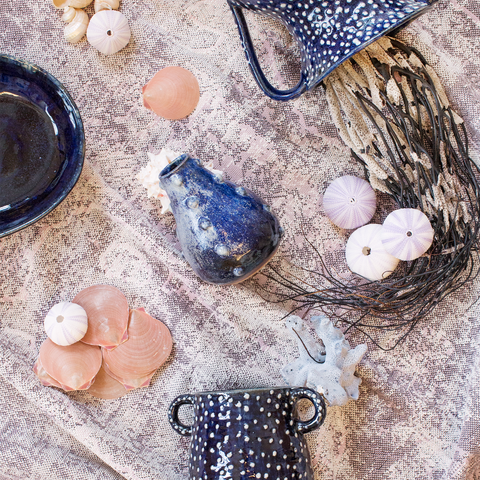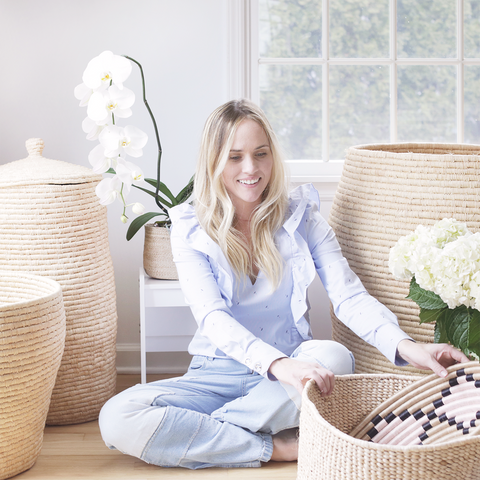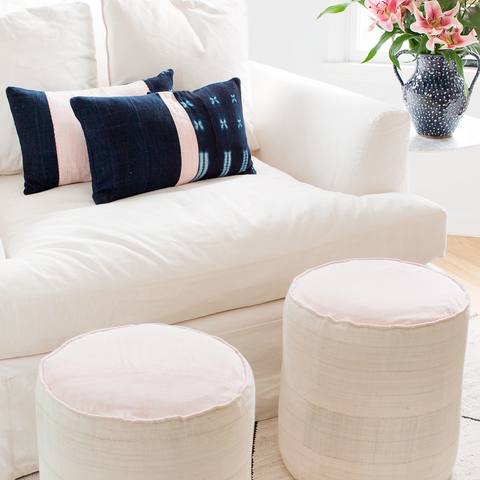Formed in 1977 by a Belgian priest in Rwanda’s southern province, Gatagara is located in a small but picturesque workshop in the district of Nyanza. Often considered the cradle of Rwanda’s heritage, Nyanza is nestled east of a large lake that provides artisans with the natural materials they need to practice traditional craft techniques. The 11 cooperative members of Gatagara may span two different generations, but they have worked together as a cohesive and committed group since 2012 to create beautiful and unique ceramic pieces.
Umutako’s pottery workshop sits atop a small plot of land in Rwanda’s Nyarugenge District outside Kigali. The 15-member cooperative sources raw materials from the surrounding hillsides and sells their products locally at a shop in Kigali with other craftspeople.

The art of pottery-making in Rwanda is deeply tied to the country’s natural resources and local materials. The artisans begin by sourcing and preparing a mixture of sand, gravel, limestone, and water in a large basin and slowly using a hoe to remove dirt and excess material. When they finish preparing the mixture, the artisans hand cast the pieces into different shapes. After molding and shaping the product, the artisans let the clay dry for 2-3 weeks depending on the season before baking them in a hot kiln.

Once they remove the products from the kiln, the artisans apply glaze and paint made from natural dyes. They grind various stones, pieces of pottery, and natural grasses to create a variety of colored powders. One ceramic piece can incorporate up to 11 different types of dyes!
After painting the pieces, the artisans bake them again in an even hotter kiln to create a glossy, polished collection of products.
From design to finished product, each piece in our ceramics collection takes about one month to complete. It is our belief that the distinctive, time-honored quality of each piece of pottery makes this collection a unique and timeless handcrafted addition to your home.



